To begin, why is water filtration important for healthy living?
Water filtration systems play a crucial role in providing clean and safe drinking water to households and communities worldwide. Access to clean water is imperative for human survival, but unfortunately, not all water sources are safe for consumption.
The purpose of these filtration systems is not only to improve the taste and clarity of the water but also to ensure its safety and cleanliness.
These systems work by removing harmful contaminants and impurities from the water, such as bacteria, viruses, chemicals, and sediments.
Contaminants such as lead, chlorine, and other chemicals can be present in tap water, which can increase the risk of illnesses like gastrointestinal issues, skin irritation, neurological damage, and more.
The importance of having a reliable water filtration system cannot be overstated, especially in areas where the quality of water is questionable. Clean and filtered water ensures that your family stays healthy.
Investing in a high-quality water filtration system is a practical and necessary step towards ensuring the health and well-being of yourself and your loved ones.
In this blog post, we'll take an in-depth look at the various types of water filtration systems out there so you can make an informed decision about which one best serves your needs. We'll cover how they work as well as the advantages and potential drawbacks associated with each type of system so that you can choose confidently.
Types of Water Filtration Systems
When it comes to selecting a water filtration system for your home, office, or other space, it's important to first understand the available different types.
There are several types of water filtration systems available in the market. Water filtration systems can vary widely and come in many types and sizes. It is important to understand what they are and which type best suits your purpose. Understanding the nuances of different water filtration systems will help you avoid costly mistakes and ensure that your family gets clean, healthy drinking water.
Each has its advantages and disadvantages, and choosing the right one depends on your specific needs and budget. Here are some of the most common water filtration systems:
Reverse Osmosis
Reverse osmosis (RO) is a water treatment process that uses a semipermeable membrane to remove impurities and contaminants from water. RO systems are highly effective at removing up to 99% of impurities from water, including minerals, salts, and heavy metals. The process works by applying pressure to the water to force it through the semipermeable membrane. The membrane only allows water molecules to pass through, while contaminants and impurities are trapped on the other side of the membrane.
Advantages of RO Systems
Highly effective at removing impurities and contaminants from water.
Removes up to 99% of dissolved solids, such as minerals and salts.
Improves the taste and odor of water.
Requires little to no electricity to operate.
Can be installed under the sink, making it a space-saving option.
Disadvantages of RO Systems
Can be expensive to install and maintain.
Wastes a lot of water during the filtration process.
Removes beneficial minerals from water.
Requires regular maintenance to replace filters and membranes.
Activated Carbon Filters
Activated carbon filters use activated charcoal to remove impurities and contaminants from water. These filters are effective in removing chlorine, pesticides, and other chemicals from water. Activated carbon filters work by attracting and absorbing impurities and contaminants to the surface of the charcoal. They are relatively inexpensive and easy to install, but they may not remove all contaminants, and they need to be replaced frequently.
Advantages of activated carbon filters
Inexpensive and easy to install.
Removes chlorine, pesticides, and other chemicals from water.
Improves the taste and odor of water.
Disadvantages of activated carbon filters
May not remove all contaminants from water.
Needs replacement filters frequently.
Does not remove dissolved solids, such as minerals and salts.
Ultraviolet (UV) Filters
UV filters use UV light to kill bacteria and viruses in water. These filters are effective in destroying harmful microorganisms, but they do not remove other contaminants, such as chemicals and minerals.
Advantages of UV filters
Highly effective in killing bacteria and viruses.
Requires little to no maintenance.
Does not alter the taste or odor of water.
Disadvantages of UV filters
Does not remove other contaminants, such as chemicals and minerals.
May require a pre-filter to remove sediment and other impurities.
Requires electricity to operate.
Ion Exchange Systems
Ion exchange systems remove hard minerals, such as calcium and magnesium, from water. Ion exchange systems work by exchanging hard minerals for soft minerals, such as sodium. These systems can help improve the taste of water and prevent scale buildup in pipes and appliances. However, they may not remove other contaminants, and they require regular maintenance to recharge the resin beads.
Advantages of ion exchange systems
Improves the taste and quality of water.
Prevents scale buildup in pipes and appliances.
Can be installed under the sink.
Disadvantages of ion exchange systems
Does not remove other contaminants from water.
Requires regular maintenance to recharge the resin beads.
Sodium is added to water, which may not be suitable for those on a low-sodium diet.
Distillation Systems
Distillation systems use heat to evaporate water and then condense it back into pure water. These systems are effective in removing contaminants, but they are expensive to operate, and they may also remove beneficial minerals from water.
Advantages of distillation systems
Highly effective at removing contaminants from water.
Produces pure water.
Requires little to no maintenance.
Disadvantages of distillation systems
Expensive to operate.
Removes beneficial minerals from water.
Can be bulky and take up a lot of space.
Common Contaminants and the correct filtration system for their removal.
Chlorine
Chlorine is added to municipal water supplies to kill bacteria and other microorganisms, but it can leave an unpleasant taste and odor.
Activated carbon filters, reverse osmosis systems, and distillation units can remove chlorine.
Lead
Lead can leach into drinking water from older plumbing systems or industrial sources.
Reverse osmosis systems, activated carbon filters, and distillation units can remove lead.
Mercury
Mercury can enter the water supply from industrial sources and can cause health problems in humans.
Reverse osmosis systems, activated carbon filters, and distillation units can remove mercury.
Fluoride
Fluoride is added to municipal water supplies to help prevent tooth decay, but high levels of fluoride can cause health problems.
Reverse osmosis systems, activated alumina filters, and distillation units can remove fluoride.
Pesticides
Pesticides can enter the water supply from agricultural runoff or industrial sources.
Reverse osmosis systems, activated carbon filters, and distillation units can remove pesticides.
Herbicides
Herbicides can enter the water supply from agricultural runoff or industrial sources.
Reverse osmosis systems, activated carbon filters, and distillation units can remove herbicides.
Arsenic
Arsenic can enter the water supply from natural deposits or industrial sources, and it can cause health problems in humans.
Reverse osmosis systems, activated alumina filters, and distillation units can remove arsenic.
Bacteria and viruses
Bacteria and viruses can cause illness and disease in humans, and they can enter the water supply from a variety of sources.
UV water purification systems, reverse osmosis systems, and distillation units can remove bacteria and viruses.
Nitrate
Nitrate can enter the water supply from agricultural runoff or industrial sources, and it can cause health problems in infants.
Reverse osmosis systems, ion exchange filters, and distillation units can remove nitrate.
Iron and Manganese
Iron and manganese can cause stains and discoloration in laundry and plumbing fixtures.
Water softeners, oxidation filters, and sediment filters can remove iron and manganese.
As evident from this list, reverse osmosis itself can remove most of the contaminants present in water. In reality, in most big installations, it is often a combination of various systems to achieve the maximum filtration efficiency, such as a combination of Reverse Osmosis, UV Filters, and Activated carbon. With such a combination, as the water flows through the different stages, the exact roles of each filter will ensure that the water is clean, hygienic, and safe to drink.
Do home water filtration systems work?
Definitely. Not all filters or treatment systems of a particular type use the same technology. And no filters or treatment systems are 100% effective in removing all contaminants from water. However, it is safe to say that the removal of the maximum amount of contaminants is prudent and should be carried out to improve and enhance the health benefits of drinking water, rather than the risk of drinking it.
For home use, a simple 3 stage beneath the sink system will suffice, incorporating a primary filter to remove all the bigger particles including sand, dirt, and silt. This water then flows through the carbon block filter to remove chlorine, pesticides, and other chemicals from the water.
In the final stage, Reverse Osmosis will remove dissolved minerals, heavy metals, and other contaminants too small to be captured by the first 2 filters.
Additional filters can be added such as a UV filter if the filtered water is tested and shows the presence of bacteria or viruses.
House water filtration systems should be the cornerstone for healthy living. We use water for drinking and cooking. Water makes up 60% of our body (75% in the case of children), and we ingest 2.7L and 3.7L of water per day on average for women and men respectively. And given that hydration is vital to our well-being, your house water filter system should not be overlooked.
Note: A whole-house filtration system may not be required such as water supplies for showers and washing. Such a whole house system can be costly and may defeat the overall benefits of having a house water filtration system.
The Impact of Water Filtration on Bottled Water Consumption
The health benefits of drinking clean and safe water are well understood and are important for the well-being of human beings and all living organisms alike. The very foundation of healthy living begins with access to clean and safe drinking water.
One of the greatest benefits, besides health, of this movement is usually underrated, which is the reduction and reliance on bottled water.
Water filtration systems can have a significant impact on reducing bottled water consumption, as they provide a convenient and cost-effective alternative to buying pre-packaged water. Instead of relying on bottled water, individuals and households can use filtration systems to purify their tap water, providing a safe and reliable source of drinking water.
Millions of tons of plastic are produced each year, and a significant portion of this plastic waste comes from single-use water bottles. By using a water filtration system, individuals can help to reduce this waste, as they no longer need to buy and dispose of plastic bottles.
Using a water filtration system can have environmental benefits beyond reducing plastic waste. Bottled water production requires significant amounts of energy and resources, including water, oil, and electricity. By using a filtration system, individuals can help to reduce the demand for these resources, which can have positive impacts on the environment.
Overall, the impact of water filtration on bottled water consumption can be significant, providing economic, environmental, and health benefits for individuals and communities. By investing in a filtration system, individuals can reduce their reliance on bottled water, helping to create a more sustainable future for us all.
Summary - Water Filtration System | The Different Types
Water filtration is essential to providing clean and safe drinking water and is an invaluable resource in helping to preserve human life. Without these systems, many people may not have clean drinking water and could face serious health risks.
With the many water filtration systems available (the list mentioned above is not exhaustive), and the scalability of their capacity, most of the filtration systems can be suitable for large commercial installations or as house water filter systems.
The health benefits of hydration with safe clean water are overwhelming. Install a simple home system, buy a good water bottle, and fill it up with clean and safe water from your house water filters, and you have sustainable good drinking water all year round, and in addition, you are also doing your part for our planet to reduce bottled water consumption, especially in the use of a one-use bottle.
With knowledge, support, and teamwork, there is hope for transforming unsafe drinking waters into safe ones that provide long-term benefits for everyone. Together we can make a positive difference in our lives. Let's work together to keep our mother earth clean and healthy.
Mentions & References
The Impact of Environmental Concern on Intention to Reduce Consumption of Single-Use Bottled Water (by Barbara Borusiak)
The plastic bottles that are used for packaging water are harmful to the environment. The objective of this study was to examine the influence of consumers’ environmental concerns on both their intention to reduce the consumption of water sold in single-use plastic bottles and their actual behavior.
https://www.mdpi.com/1996-1073/14/7/1985
Environmental impact of bottled water ‘up to 3,500 times greater than tap water’ (by Joey Grostern)
The lead author of the study, the ISGlobal researcher Cristina Villanueva, said: “Health reasons don’t justify the wide use of bottled water. Yes, strictly speaking, drinking tap water is worse for local health, but when you weigh both, what you gain from drinking bottled water is minimal. It’s quite obvious that the environmental impacts of bottled water are higher compared to tap water.”
https://www.theguardian.com/environment/2021/aug/05/environmental-impact-of-bottled-water-up-to-3500-times-greater-than-tap-water
The real cost of bottled water (By The University of Queensland, Australia)
The environmental effects of bottled water use are extensive. Although most bottles are able to be reused or recycled, most plastic bottles that are currently produced are made from virgin polyethylene terephthalate (PET). Plastic is comprised of non-renewable fossil fuels, which are a finite resource, and the use of this product encourages mining which has associated environmental impacts.
https://sustainability.uq.edu.au/projects/recycling-and-waste-minimisation/real-cost-bottled-water
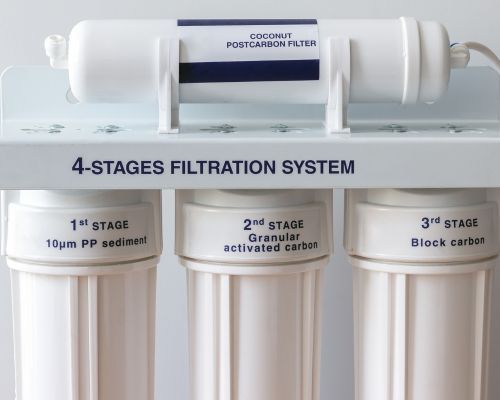

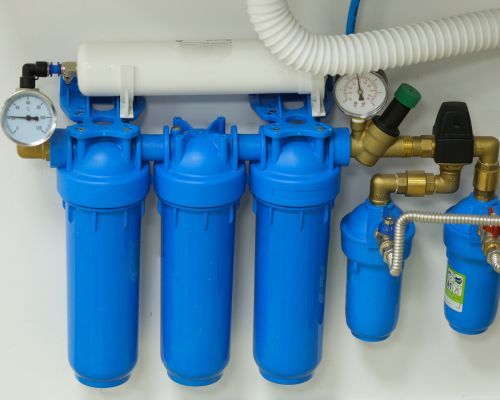
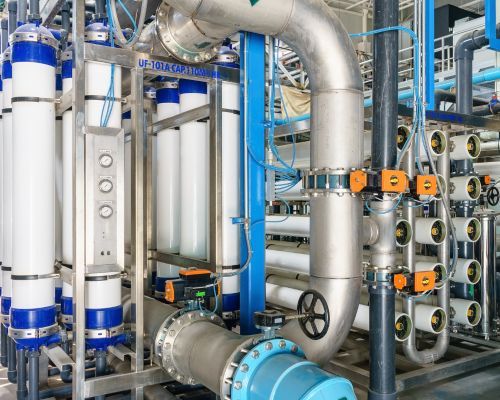
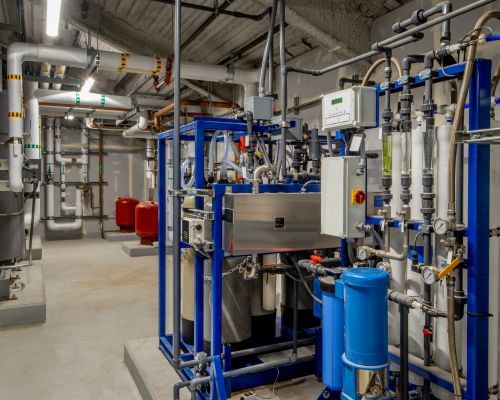
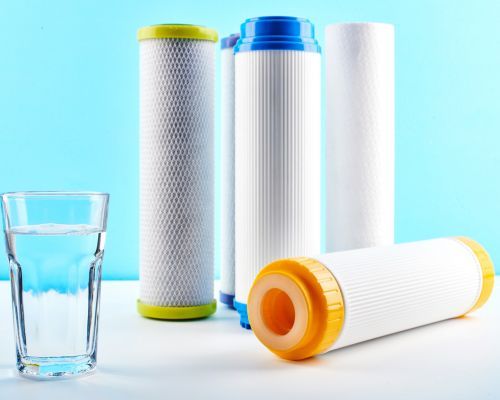
Living the Great Outdoors with Trusted Outdoor Gear!
For more great outdoor gear on hydration and drinking water, check our takes on Water Filter Straw, Alkaline Water Bottle, Crystal Water Bottle, and Gallon water bottles.
Read more on The Power of Hydration
For a good insight into what is available for Under The Sink & Counter Top Filtration, click below to see what available at Amazon.
Water Filters - Under The Sink and Counter Top Filtration








